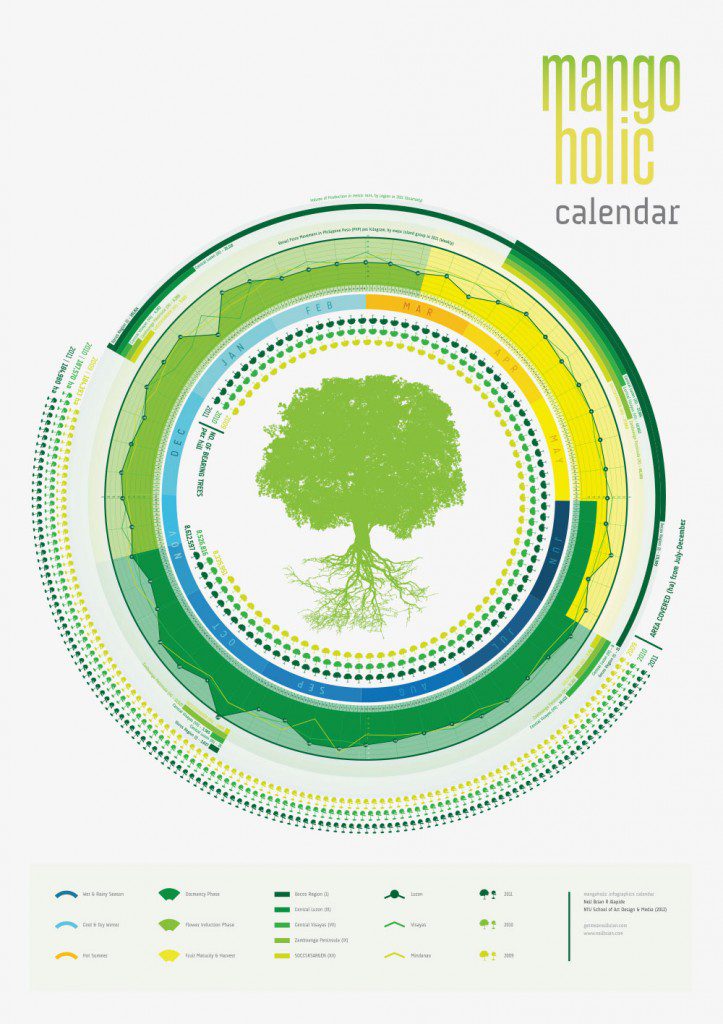[vc_row][vc_column][vc_column_text]Introducing the Mango Calendar: A celebration of Philippine seasons
This infographic calendar reimagines the traditional date-month system, drawing inspiration from the captivating annual cycle of the majestic Philippine mango tree. By following the mango tree’s natural rhythm – from flowering to fruiting – the calendar unveils a symbiotic relationship between the tree, the local wind and monsoon systems, and the bountiful harvests that mark the Philippine seasons.
Key insights:
- The calendar uses the mango’s flowering and fruiting seasons to represent the year, offering an alternative perspective on timekeeping.
- Data visualizations like bar charts reveal regional variations in mango production, highlighting Central Luzon (III) and SOCCSKSARGEN (XII) as key contributors in 2011 (data permitting).
- Line graphs showcase a potential upward trend in both planted area and the number of bearing trees from 2009 to 2011, suggesting a growing mango industry.
- Pie charts (if data is available for all quarters) demonstrate the dominance of the Carabao variety throughout the year, with Piko playing a significant seasonal role.
This project not only celebrates the cultural significance of the mango but also uses data visualisation to tell a captivating story about Philippine agriculture.
Offers valuable insights for:
- Farmers: Understanding seasonal production patterns and regional variations can inform planting and harvesting strategies.
- Policymakers: Data on planted area and bearing trees can help guide agricultural development initiatives.
- Consumers: The calendar fosters appreciation for the local mango industry and its seasonal rhythms.
More Than Just Dates: A Cultural Tapestry
This unique calendar is part of the “Mangoholic” series, a love letter to the Philippine mango. The series celebrates the fruit’s profound impact on Filipino culture, from its economic importance in agriculture to its presence in vibrant local art and storytelling. Alongside the Mango Calendar, the series features an illustrated children’s book, “The Legend of the Mango (Alamat ng Mangga),” that promises to captivate young hearts and minds.
Download a copy here: PDF / JPEG.[/vc_column_text][/vc_column][/vc_row][vc_row][vc_column][vc_empty_space height=”80″][/vc_column][/vc_row]

